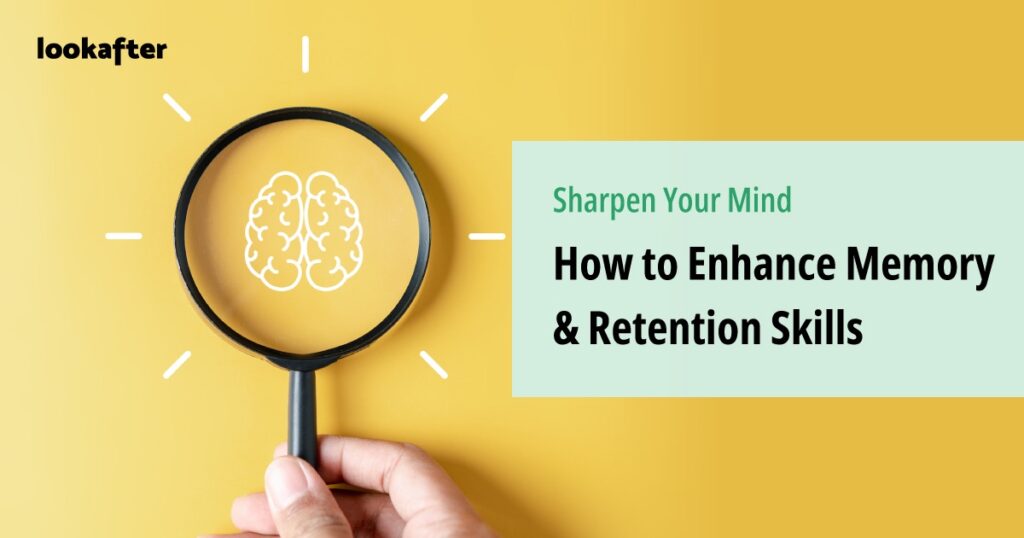Home > Empowering Tips > Sharpen Your Mind: How to Enhance Memory and Retention Skills

Whether you’re striving for professional development, advancing in your career, or simply seeking to improve cognitive function, enhancing memory and retention skills can significantly impact your success.
Here are some strategies to sharpen your mind and enhance memory and retention skills:
Active Learning Techniques: Engage actively with the material you’re trying to learn. Instead of passively reading or listening, actively participate by asking questions, making connections to prior knowledge, and summarizing key points. This approach stimulates deeper processing, making information easier to remember.
Create a Learning Routine: Establish a consistent study or learning routine. Set aside dedicated time each day for learning activities, whether it’s reading articles, watching educational videos, or practicing skills relevant to your profession. Consistency helps reinforce neural pathways associated with memory.
Utilize Mnemonics: Mnemonic devices are memory aids that help you remember information more effectively. Techniques such as acronyms, visualization, and creating associations can be powerful tools for enhancing memory retention. For example, creating a memorable acronym to remember a list of key points or visualizing vivid images associated with specific concepts.
Chunking Information: Break down complex information into smaller, more manageable chunks. By organizing information into meaningful groups, you can improve comprehension and retention. For instance, when learning new vocabulary words or technical terms, group them into categories based on similarity or relevance.
Repetition and Review: Reviewing information multiple times at spaced intervals can reinforce learning and improve retention. Instead of cramming all at once, distribute your study sessions over time. This spaced repetition technique enhances long-term memory retention by strengthening neural connections.
Teach Others: Teaching concepts to others is an effective way to reinforce your own understanding and retention of the material. Whether it’s explaining a topic to a colleague, tutoring a peer, or leading a training session, the act of teaching engages different cognitive processes and deepens your comprehension.
Stay Physically Active: Regular physical exercise has been shown to benefit cognitive function and memory. Incorporate physical activity into your daily routine, whether it’s going for a brisk walk, cycling, or practicing yoga. Exercise improves blood flow to the brain, promotes neuroplasticity, and enhances overall brain health.
Get Sufficient Sleep: Adequate sleep is crucial for memory consolidation and cognitive function. Aim for 7-9 hours of quality sleep each night to support optimal brain performance. Prioritize sleep hygiene practices such as maintaining a consistent sleep schedule, creating a comfortable sleep environment, and avoiding stimulants like caffeine before bedtime.
Practice Stress Management: Chronic stress can impair memory and cognitive function. Implement stress-reduction techniques such as mindfulness meditation, deep breathing exercises, or progressive muscle relaxation to alleviate stress and promote mental well-being.
Maintain a Balanced Diet: Nutrition plays a significant role in brain health and cognitive function. Consume a balanced diet rich in fruits, vegetables, whole grains, lean proteins, and healthy fats. Omega-3 fatty acids, antioxidants, and vitamins found in foods like fatty fish, nuts, seeds, and leafy greens support brain function and memory.
In conclusion, enhancing memory and retention skills is an ongoing process that requires dedication and practice. By incorporating these strategies into your daily routine, working professionals can unlock their full cognitive potential, improve learning efficiency, and excel in both personal and professional endeavours. Start implementing these techniques today and embark on a journey toward a sharper, more resilient mind.